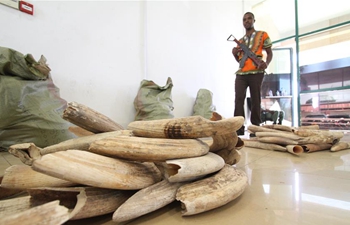URUMQI, Jan. 30 (Xinhua) -- Chinese researchers have helped their counterparts in Kyrgyzstan finish an initial assessment of drinking water pollution in the Central Asian country.
The study is part of an ongoing joint program aimed at addressing grave safety concerns about drinking water in Kyrgyzstan.
Researchers completed the tests of 184 samples collected from over 20 major rivers, said Li Yaoming with the research institute of ecology and environment of Central Asia under the Chinese Academy of Sciences (CAS).
In addition to the water quality assessment, researchers will work to improve water supply networks and promote water purification technology.
With an abundance of snow-covered peaks and glaciers, Kyrgyzstan is called the "water tower" of Central Asia. However, the country's water quality in many places fails to meet drinking standards, Li said.
Its urban water supply networks are outdated, while rural areas lack such facilities. Rural residents fetch water from rivers, some contaminated by mining waste, and shallow wells. This water has excess levels of heavy metals, organic matter or microorganisms.
Kyrgyzstan lacks capacity and funding for research in the field, Li said.
Researchers will advise the government on solutions to water pollution, use of rainwater, waste water treatment and recycling, and will help train professionals in these areas.
In Kyrgyzstan, CAS has also taken part in joint studies of soil, lakes, farm produce and mines.
China has advanced scientific and technological cooperation with countries along the Silk Road Economic Belt and the 21st-Century Maritime Silk Road.


















